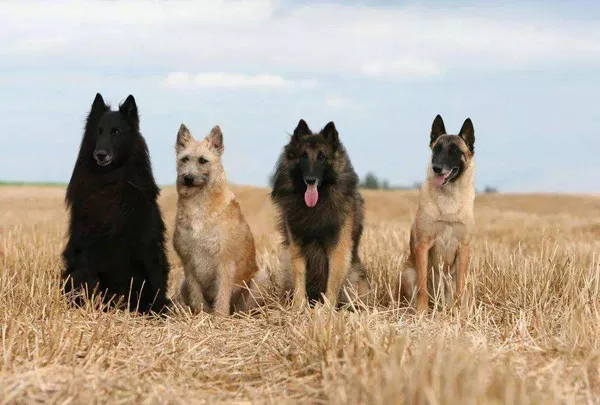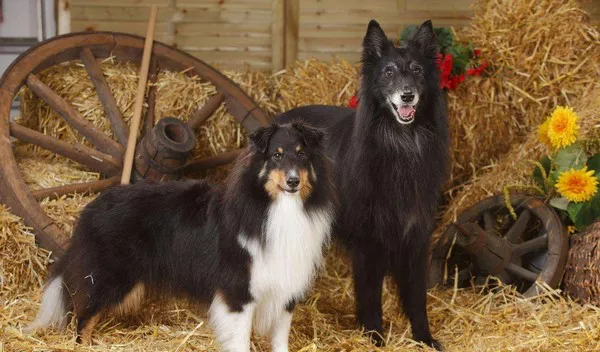Flemish Giant rabbits, one of the largest and most gentle breeds of domestic rabbits, are known for their friendly temperament, impressive size, and fluffy coats. As a pet owner or someone interested in the care of Flemish Giants, you may have wondered whether it’s safe to feed them certain foods. One common question that arises is, Can Flemish rabbits eat bananas?
In this article, we will dive into the dietary needs of Flemish Giant rabbits, the potential benefits and risks of feeding them bananas, and how to provide a balanced diet for these gentle giants.
What Are Flemish Giant Rabbits
Flemish Giant rabbits are a unique breed that originally hails from Belgium. They are known for their size, often growing to 14 to 16 pounds or more, and can live for 7 to 10 years, depending on their health and living conditions. Flemish Giants have a calm demeanor, making them an excellent choice for families with children or other pets.
Despite their enormous size, Flemish Giant rabbits are very gentle and affectionate creatures. They enjoy socializing with their owners and can even be litter trained. However, like all rabbits, they need a special diet to maintain good health, and their nutritional needs should be carefully considered to ensure they thrive in a domestic setting.
The Importance of Diet in Flemish Giant Rabbits
Rabbits are herbivores, which means they eat primarily plant-based foods. Their digestive systems are designed to process fiber, and they require a high-fiber diet to support their complex gastrointestinal systems. The primary components of a healthy rabbit diet should include:
- Hay: Hay is the most important part of a rabbit’s diet, providing the necessary fiber for proper digestion. Good-quality hay like timothy hay, meadow hay, and oat hay should make up the majority of their diet.
- Fresh Vegetables: Leafy greens such as romaine lettuce, kale, cilantro, and parsley are ideal for rabbits. These vegetables are packed with essential nutrients and moisture.
- Pellets: While hay should be the main food source, specially formulated rabbit pellets can provide additional vitamins and minerals. However, pellets should not make up more than 10-15% of their total diet.
- Fresh Water: Access to clean, fresh water is vital for all rabbits, including Flemish Giants. Ensure that your rabbit has access to water at all times.
- Fruits and Treats: Rabbits can enjoy a small portion of fruits and treats occasionally. These foods should be given in moderation, as they are often high in sugars and can contribute to digestive issues if overfed.
Now, let’s turn our attention to bananas, a common fruit that many rabbit owners might be curious about feeding their pets.
Nutritional Profile of Bananas
Bananas are a popular fruit among humans due to their sweet taste and nutritional value. They are rich in essential vitamins and minerals, including:
- Vitamin C: Although rabbits can produce their own vitamin C, it’s still beneficial for them to consume foods that are rich in this nutrient, as it plays a role in immune health and skin integrity.
- Potassium: Bananas are known for their high potassium content, which is important for maintaining healthy heart and muscle function.
- Vitamin B6: This vitamin plays a role in metabolism and supports the nervous system.
- Fiber: Bananas contain dietary fiber, which aids in digestion.
Despite their health benefits, bananas are relatively high in sugar and carbohydrates compared to other fruits and vegetables. This is an important consideration when feeding bananas to Flemish rabbits.
Can Flemish Rabbits Eat Bananas?
Yes, Flemish rabbits can eat bananas, but only in moderation. While bananas are not toxic to rabbits, they should not be a regular part of their diet due to their high sugar content. Too much sugar can lead to various health problems, including obesity, gastrointestinal disturbances, and dental issues.
When offering bananas to your Flemish Giant, it’s essential to remember that fruits should be considered a treat and not a staple food. The natural sugar found in bananas is not harmful in small amounts, but overfeeding can cause negative effects on your rabbit’s digestive system. Here’s a closer look at some of the reasons why moderation is key when feeding bananas to Flemish rabbits.
Benefits of Bananas for Flemish Rabbits
Even though bananas should be fed sparingly, there are a few benefits that can come from offering this sweet treat to your Flemish Giant:
- Rich in Nutrients: Bananas provide a good source of vitamins and minerals, including vitamin C, vitamin B6, and potassium. These nutrients contribute to overall health, including proper immune function and energy levels.
- Encouraging Healthy Eating Habits: If your rabbit is a picky eater, offering a small piece of banana as a treat can encourage them to try new foods. Sometimes, a small amount of a sweet fruit like banana can entice your rabbit to consume more hay or fresh vegetables.
- Variety and Enrichment: Like humans, rabbits enjoy a bit of variety in their diets. Offering different fruits occasionally can help enrich their eating experience and prevent them from becoming bored with their regular food.
However, it is essential to balance the benefits with the risks associated with feeding bananas to your Flemish Giant.
Potential Risks of Feeding Bananas to Flemish Rabbits
While bananas can be a tasty treat, they come with some potential risks that every rabbit owner should be aware of:
- High Sugar Content: Bananas are high in sugar, which can cause gastrointestinal problems in rabbits. Excessive sugar consumption can disrupt the delicate balance of bacteria in their gut, leading to issues such as diarrhea, bloating, and discomfort.
- Obesity: Overfeeding sugary fruits like bananas can contribute to weight gain. Since Flemish Giants are already larger rabbits, it’s important to monitor their weight closely and avoid feeding high-calorie treats that can lead to obesity and related health complications.
- Dental Health: Rabbits’ teeth grow continuously throughout their lives, and chewing fibrous foods like hay helps wear them down. Offering sugary fruits like bananas too frequently can contribute to poor dental health, as rabbits may choose to nibble on softer, sweeter foods instead of chewing on fibrous hay. This can lead to dental problems such as malocclusion (misalignment of the teeth) and dental abscesses.
- Digestive Disturbances: Rabbits have sensitive digestive systems, and sudden changes in their diet can lead to upset stomachs or diarrhea. Introducing bananas too quickly or in excessive amounts can cause these issues. Always introduce new foods gradually and monitor your rabbit for signs of digestive distress.
How to Safely Feed Bananas to Flemish Rabbits
If you decide to give your Flemish Giant rabbit a banana, follow these guidelines to ensure it’s done safely:
- Offer Banana in Moderation: Bananas should only be given as an occasional treat, not a regular part of your rabbit’s diet. A small slice or bite-sized piece is enough. Limit banana treats to once or twice a week.
- Peel the Banana: Always remove the peel before offering banana to your rabbit. While the peel is not toxic, it is tough and fibrous, which could cause digestive issues. The flesh of the banana is what your rabbit can safely eat.
- Watch for Signs of Digestive Problems: After giving your rabbit a piece of banana, observe them for any signs of digestive upset, such as diarrhea, bloating, or lethargy. If any of these symptoms occur, discontinue offering banana and consult your veterinarian.
- Combine with a Balanced Diet: Remember that hay should make up the majority of your rabbit’s diet, with vegetables, pellets, and occasional treats like banana serving as supplements. A healthy, balanced diet will help ensure that your Flemish Giant stays in top condition.
Other Safe Fruits and Vegetables for Flemish Rabbits
In addition to bananas, there are many other fruits and vegetables that are safe for Flemish rabbits to consume in moderation. Here are a few examples:
- Leafy Greens: Romaine lettuce, cilantro, dandelion greens, and parsley are excellent choices for rabbits.
- Fruits: Apples (without seeds), strawberries, blueberries, raspberries, and peaches can be offered as occasional treats.
- Carrots: While high in sugar, carrots are a safe and healthy treat for rabbits in small amounts.
- Herbs: Fresh herbs such as basil, mint, and dill can be a flavorful and nutritious addition to your rabbit’s diet.
Be sure to research any new foods thoroughly before introducing them to your rabbit’s diet, as some fruits and vegetables are harmful or toxic to rabbits.
Conclusion
Flemish Giant rabbits, like all rabbits, require a specialized diet that is high in fiber and low in sugar. Bananas are safe to feed in small amounts, but they should only be given as an occasional treat due to their high sugar content. Overfeeding bananas can lead to digestive issues, obesity, and dental problems, so it’s essential to offer them in moderation.
Always prioritize hay, fresh vegetables, and fresh water as the foundation of your rabbit’s diet. If you’re unsure about whether a specific food is safe for your Flemish Giant, consult with a veterinarian who specializes in rabbits. By providing a balanced diet and treating your rabbit to occasional healthy snacks, you’ll help ensure that they live a long, happy, and healthy life.
Related Topics:






















